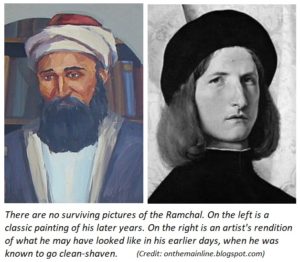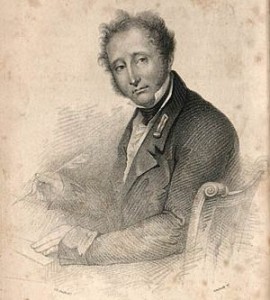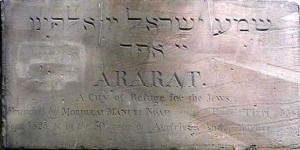The Unparalleled Kabbalist Who Became the Father of Modern Hebrew
 Moshe Chaim Luzzatto (1707-1746) was born in Padua, Italy to a wealthy Sephardic family. He studied under some of the great Italian rabbis of the time and was quickly recognized as a prodigy, receiving rabbinic ordination himself while still a teenager. He also took up studies at the University of Padua, and by the time he was just 20 years old had complete mastery of Torah, Talmud, and Kabbalah (Jewish mysticism), as well as philosophy, medicine, and alchemy. He had also written a textbook on Hebrew language and grammar, Leshon Limmudim (predating Eliezer Ben-Yehuda by some two centuries!) Meanwhile, Luzzatto wrote several plays including a dramatization of the Biblical story of Samson. Around the same time, he started writing a book of 150 psalms to mirror the 150 Psalms of King David in the Tanakh. His Hebrew and poetry were of such a high level that people had a hard time distinguishing between the psalms of Luzzatto and the psalms of David! This drew the anger of many rabbis, who banned the work. The final straw was when Luzzatto revealed that he had been visited by a maggid, an angel that taught the mysteries of the Torah. He started writing these teachings down, and relaying them to a small mystical circle. When word got out, the Italian rabbis sought to excommunicate him for good. To avoid the decree, Luzzatto agreed to stop teaching and leave Italy. He resettled in Amsterdam and made a living as a diamond cutter and lens grinder. During this time he produced his greatest works, which would become classics of Judaism and standard textbooks in yeshivas to this day: Mesillat Yesharim (“Path of the Just”), a manual for personal development and character refinement; Derekh Hashem (“Way of God”) on the fundamentals of Jewish theology; Da’at Tevunot, a unification of Kabbalah and rationalism written in the form of a conversation between the Soul and the Intellect; and Derekh Tevunot, a manual for Talmudic study. He also wrote a number of commentaries on the Zohar (the central text of Kabbalah) and countless other discourses, most of which have been lost. After being barred from teaching in Amsterdam as well, he headed to the Holy Land and settled in Acco. There he helped build the Jewish community and a new synagogue (destroyed by Bedouins in 1758). Sadly, Rabbi Moshe Chaim Luzzatto (or the Ramchal, his initials, by which he is better known) perished in a devastating plague that broke out several years later. One of the early Hasidic leaders, Rabbi Dov Ber of Mezerich, would later say of the Ramchal that “His generation did not have the merit of this great man.” The Vilna Gaon famously stated that had the Ramchal still been alive, he would have walked all the way from Lithuania to Amsterdam just to meet him, and that the Ramchal was the only person to understand Kabbalah since the Arizal. The Ramchal was seen as a hero and inspiration by secular Jewish and Haskalah leaders, too, who crowned him the “father of modern Hebrew literature”. Today, the 26th of Iyar, is his yahrzeit.
Moshe Chaim Luzzatto (1707-1746) was born in Padua, Italy to a wealthy Sephardic family. He studied under some of the great Italian rabbis of the time and was quickly recognized as a prodigy, receiving rabbinic ordination himself while still a teenager. He also took up studies at the University of Padua, and by the time he was just 20 years old had complete mastery of Torah, Talmud, and Kabbalah (Jewish mysticism), as well as philosophy, medicine, and alchemy. He had also written a textbook on Hebrew language and grammar, Leshon Limmudim (predating Eliezer Ben-Yehuda by some two centuries!) Meanwhile, Luzzatto wrote several plays including a dramatization of the Biblical story of Samson. Around the same time, he started writing a book of 150 psalms to mirror the 150 Psalms of King David in the Tanakh. His Hebrew and poetry were of such a high level that people had a hard time distinguishing between the psalms of Luzzatto and the psalms of David! This drew the anger of many rabbis, who banned the work. The final straw was when Luzzatto revealed that he had been visited by a maggid, an angel that taught the mysteries of the Torah. He started writing these teachings down, and relaying them to a small mystical circle. When word got out, the Italian rabbis sought to excommunicate him for good. To avoid the decree, Luzzatto agreed to stop teaching and leave Italy. He resettled in Amsterdam and made a living as a diamond cutter and lens grinder. During this time he produced his greatest works, which would become classics of Judaism and standard textbooks in yeshivas to this day: Mesillat Yesharim (“Path of the Just”), a manual for personal development and character refinement; Derekh Hashem (“Way of God”) on the fundamentals of Jewish theology; Da’at Tevunot, a unification of Kabbalah and rationalism written in the form of a conversation between the Soul and the Intellect; and Derekh Tevunot, a manual for Talmudic study. He also wrote a number of commentaries on the Zohar (the central text of Kabbalah) and countless other discourses, most of which have been lost. After being barred from teaching in Amsterdam as well, he headed to the Holy Land and settled in Acco. There he helped build the Jewish community and a new synagogue (destroyed by Bedouins in 1758). Sadly, Rabbi Moshe Chaim Luzzatto (or the Ramchal, his initials, by which he is better known) perished in a devastating plague that broke out several years later. One of the early Hasidic leaders, Rabbi Dov Ber of Mezerich, would later say of the Ramchal that “His generation did not have the merit of this great man.” The Vilna Gaon famously stated that had the Ramchal still been alive, he would have walked all the way from Lithuania to Amsterdam just to meet him, and that the Ramchal was the only person to understand Kabbalah since the Arizal. The Ramchal was seen as a hero and inspiration by secular Jewish and Haskalah leaders, too, who crowned him the “father of modern Hebrew literature”. Today, the 26th of Iyar, is his yahrzeit.
Words of the Week
He who confronts himself with the paradoxical, exposes himself to reality.
– Friedrich Durenmatt




